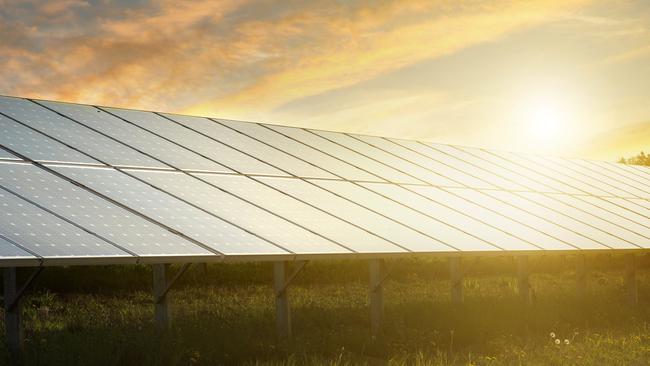Coffs falls short on renewable energy, emissions targets
Despite ambitious goals, pandemic delays Council’s solar aspirations.

Coffs Harbour
Don't miss out on the headlines from Coffs Harbour. Followed categories will be added to My News.
Despite taking a lead on climate action, Council has fallen shy of its ambitious targets to reduce carbon emissions and increase usage of renewables.
In 2016 Councillors voted to more than double a recommended target for renewable energy usage to 25 per cent and enact the Coffs Harbour Renewable Energy and Emissions Reduction Plan, with the installation of solar photovoltaic systems at council sites at its core.
The targets, which also sought to cut yearly CO2 emissions by 25 per cent, have remained unmet with a report showing emissions reductions reached 10 per cent in 2020 and renewable energy 3 per cent.
REMEMBER: Activate your free Daily Telegraph subscription now
The COVID-19 pandemic is listed as being a contributing factor in delaying the completion of 15 solar projects which would have greatly increased its renewable energy usage and helped reduce its CO2 emissions.
Past reports estimated that installation of the solar photovoltaic systems across the council sites would have boosted renewable energy usage to around 20 per cent.
Work on 11 of the solar projects has been completed and the rest are due to be finished mid-year with one of the largest being at the Karangi Water Treatment Plant.
Installation of LED street lighting is also complete, a move which has echoes of 2004 when the Coffs Harbour became the first in council in the country to install energy efficient lighting across the entire LGA.
The targets were outlined in Council’s six-monthly progress report from July to December 2020, which provides details on the progress of its Delivery Program.
The report, containing 294 operational activities, showed the vast majority were on track with 35 listed as needing attention, three as ‘Critical’ and 13 as ‘On Hold’.
The report will be tabled at today’s council meeting.
Through the Coffs Harbour Renewable Energy and Emissions Reduction Plan, Council is aiming to reduce its annual CO2 emissions by 50 per cent by 2025 and increase its renewable energy usage to 100 per cent by 2030.


